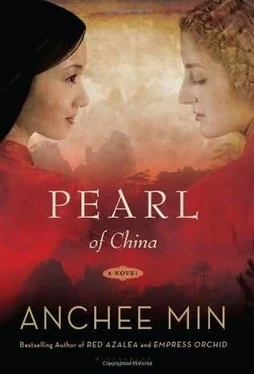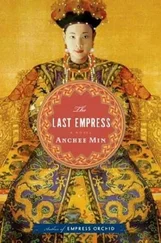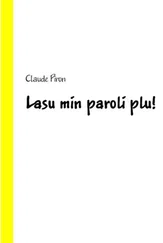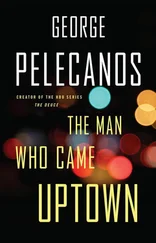For the sake of my daughter, I stopped trying to seek out churches in Beijing in which to worship. But even if I wanted to, I could never give up my faith in God. I prayed in the dark. I was on my knees when Dick and Rouge were asleep. I was also determined to keep up my correspondence with Pearl as long as I could.
Dick’s stomach pain worsened and finally he needed surgery. Two thirds of his stomach was removed. He continued to work from his hospital bed. He met with some of the day’s most influential people, from Chiang Kai-shek’s former ministers to famous artists. Dick’s goal was to secure domestic and international legitimacy for Mao. “Chairman Mao must make more friends. At any time, America could use Taiwan as its military base to launch an attack on China,” Dick told Rouge.
As China’s new minister of the Bureau of Culture, Science, and Art, Dick encouraged overseas Chinese to return to their homeland. For the next ten years Dick would write hundreds of letters telling his friends all over the world that “Mao is a wise and merciful leader who recognizes and appreciates talent.”
Among those who returned were intellectuals, scientists, architects, playwrights, novelists, and artists. In the name of the Communist Party, Dick guaranteed their salaries and offered privileged lifestyles and freedom of expression. Dick appointed them as heads of national theaters and universities. Every morning, Dick drove his jeep to pick up the new arrivals. Every evening, he hosted a gay welcoming party.
At one welcoming party, Dick drank too much. The next morning, with puffy, bloodshot eyes, he said, “If Hsu Chih-mo hadn’t died, I would have invited him. He would have enjoyed himself.”
“Hsu Chih-mo would not hide himself like I do,” I responded. “He would have criticized Mao. He would have told Mao to his face that he was an amateur poet.”
“Who are you trying to challenge?” Dick was irritated. “Why are you so cynical all the time?”
“I just question how true China’s freedom of expression is,” I said. “Are you sure that you can keep the promises you have made to so many?”
Dick understood my concern. He could not answer my question, because deep down he knew that “Mao’s will” would be the “nation’s will.”
“You might end up carrying the stone that will eventually smash your own toes,” I said, afraid.
Dick put his arm around my shoulders and said that he agreed with me. “But I must have faith in what I do.”
I rubbed my face against his hand and told him that I understood.
“I must trust that others share my values,” Dick said in a gentle voice.
“You are being naïve.”
“I know, I know,” he cut me off. “Your worries are legitimate but unnecessary.”
“I can see it coming.”
“Willow, you have a wild imagination. Don’t let it drive you crazy.”
“I won’t say this again. Listen, I am your wife, and I know you enough to know that you and Mao are different people.”
“We complement each other.”
“That is not what I mean.”
“I know what you mean, darling.”
“Let me finish, will you?” I was upset. “To get his way, Mao will not hesitate to persecute or-dare I say the word?-murder. He’s done it before.”
Dick stood and put some distance between us. “Mao doesn’t own the party,” he said in a firm voice. “Communism is about justice and democracy.”
Dick led me to his room and opened the top drawer in his desk. He took out an envelope. I could tell that the Chinese writing on the envelope was Pearl’s. The stamps showed that the letter had arrived two months ago, and the letter had already been opened. The envelope was empty.
“My privacy has been invaded,” I protested.
“Mao’s internal security agents opened it.”
“Where is the letter?”
“The central bureau has it. They notified me that it was to be confiscated.”
“Why didn’t you speak up for me?”
“You would not be here now if I hadn’t!” Dick almost yelled.
I knew Dick had done his best.
“Look.” Dick pulled more documents from his drawer. “Here is more evidence. I have fought for you not once but repeatedly.”
I had had no idea that I was in so much trouble.
“You are being watched by internal security,” Dick continued. “You are one step from becoming known as an enemy sympathizer. Your friendship with Pearl Buck is seen as a threat to national security. Pearl’s status in America and her public criticism of Mao and the Communist Party have categorized her as an enemy of China.”
“Am I a suspect?”
“What do you think? You were caught passing her information.”
I remembered that in my letters I had shared with Pearl my doubts about Dick’s efforts to recruit people to the Communist cause. I had confided to her that I could never forget what had happened in Yenan in the thirties. Several Shanghai youths Dick had recruited had been arrested as spies and shot. All these years later, their families still wrote to Dick asking for information about their loved ones. Dick put on a mask when talking to them. He had no answers for them. He felt responsible and couldn’t forgive himself no matter how many times he told himself that the murders had been caused by the war with Japan.
I didn’t mean to mail Pearl another letter. I knew it was too dangerous. The political atmosphere had begun to change after Mao’s experiment called the Great Leap Forward. It began in the year 1958 and lasted three years before utterly failing. It forced the entire nation to adopt a communal lifestyle. The result was millions of deaths and a starving nation. By the end of 1962, respect for Mao had faded. There were voices calling for a “competent leader.”
Feeling that his power was threatened, Mao suppressed the growing criticism. Madame Mao opened a national media conference to “clear away the confusion.” Dick was to draft a “battle plan.” The first thing Dick was ordered to do was close China’s door to the outside. He had to personally apologize to foreign journalists and diplomats for canceling their entry visas. “It is temporary,” Dick assured them. “China will be open for business again sooner than you know.”
But when Dick came home he told me that he had little confidence in what he had promised his friends. Mao had no intention of reopening China’s door. It led me to think that mailing the letter would be my last chance to contact Pearl. It would be now or never.
Acting like an undercover agent, I disguised myself as a peasant and dropped my letter in a post office outside Beijing. It was a warm day in April. The sunshine filtered through the clouds. The trees were light green with new leaves. Children wearing red scarves on their necks were singing cheerful songs. I made sure to cover my tracks by taking different buses. On my way back I couldn’t help wiping my tears. I sensed that I might never again hear from Pearl.
Hard as I tried, I could no longer put on a smiling face and maintain a positive attitude. As far as the party was concerned, this meant being politically correct at all times. It grew harder every day. I would attack Dick at home and my anger would spill over.
“Mao robs the lives of innocent people!” I would yell and throw my chopsticks at the wall. “It’s brutality!”
“Sacrifice would be a better word.” My husband hushed me and went to shut the windows.
“Speak to me without your mask, Dick! Tell me, in your heart have you questions, reservations, doubts?”
Dick went silent.
“How can you bear the thought that you have murdered for Mao? You are struggling to justify yourself.”
“Enough, Willow. This is 1963, not 1936! The proletarians rule today. Our Chairman is following in Stalin’s footsteps. One wrong word and you can lose your tongue, if not your head.”
Читать дальше












